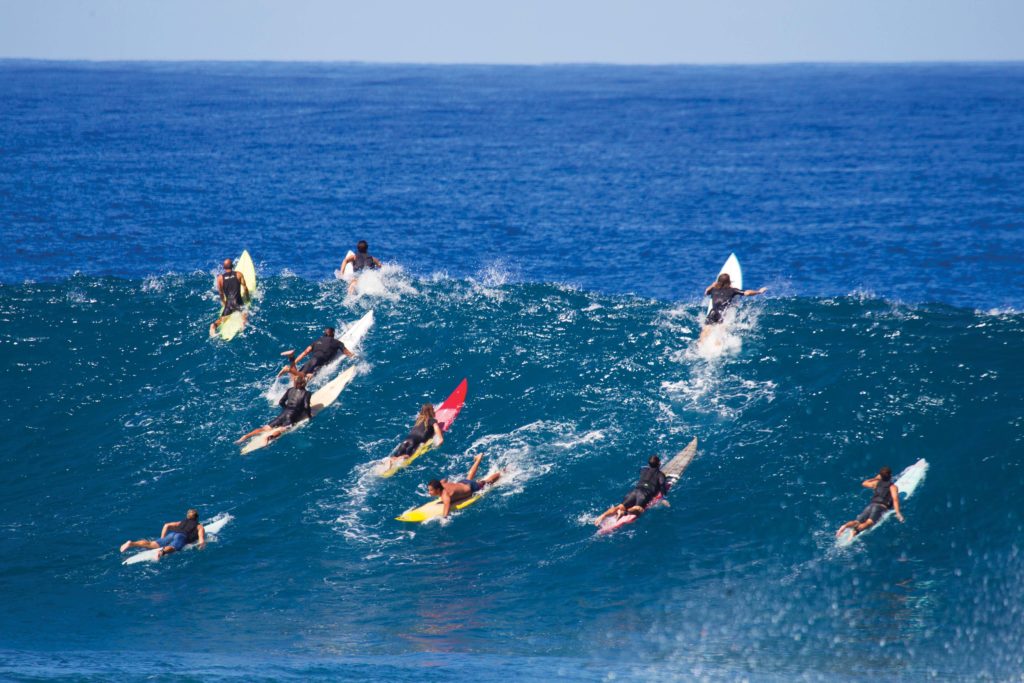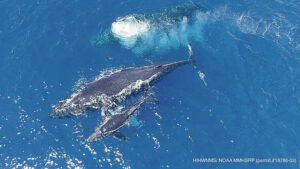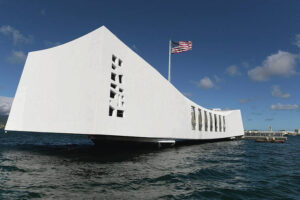By Chris Fleck
Now that you’ve settled into your room at Castle Resorts & Hotels, it can be pretty tempting to get into a sloth-like state. However, there’s a whole slate of adventures waiting for you outside! From O‘ahu’s azure waters to its emerald green forests and scenic coastlines, the island is just begging to be explored.
Humpback Hikes
Spotting whales in Hawai‘i is dependent on the time of year, but to see these giants of the sea breaching or lobtailing is a spectacle that’s well worth the timing. Following a migration path of 3,000 miles from the icy waters near Alaska, North Pacific Humpback Whales can be viewed from O‘ahu from November to March — with January and February being peak viewing months. A few hikes that provide spectacular whale watching points of view include the Makapu‘u Lighthouse Trail. An easy to moderate hike, the trail is located on the Easternmost point of O‘ahu. A mostly paved trail, the two-mile, round-trip hike winds along the coast and provides on-site telescopes and many scenic vantage points for photos and whale spotting.
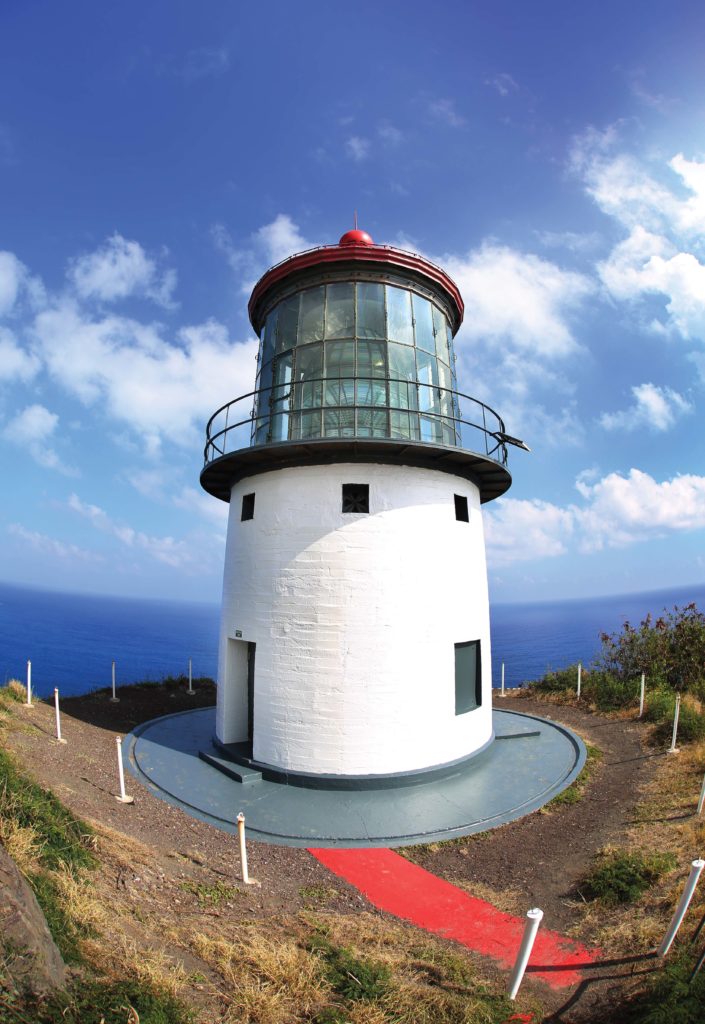
Over on the North Shore, above the famed Banzai Pipeline, Ehukai Pillbox hike is a two-mile loop trail that is wide and well maintained. Starting near Sunset Beach Elementary School, the trail twists upwards through a moderately dense forest until reaching a former military bunker or pillbox. From here, there’s nothing between you and the horizon, making it a prime spot for scoping out whales migrating or playing. A couple of other hikes for whale watching include Hanauma Bay Rim Trail and Ka‘ena Point. dlnr.hawaii.gov
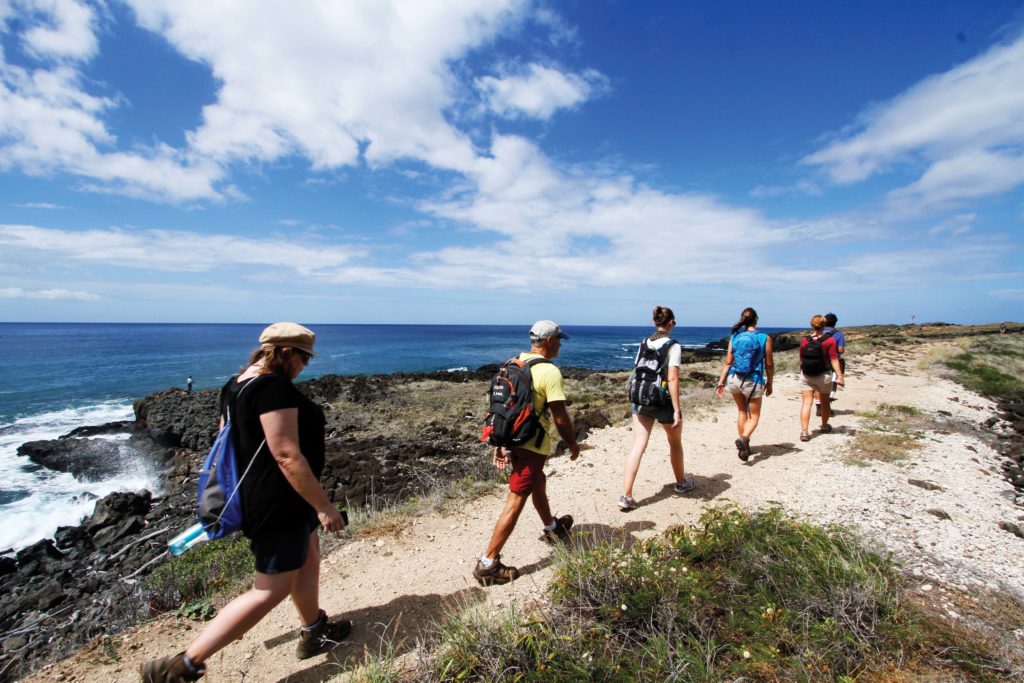
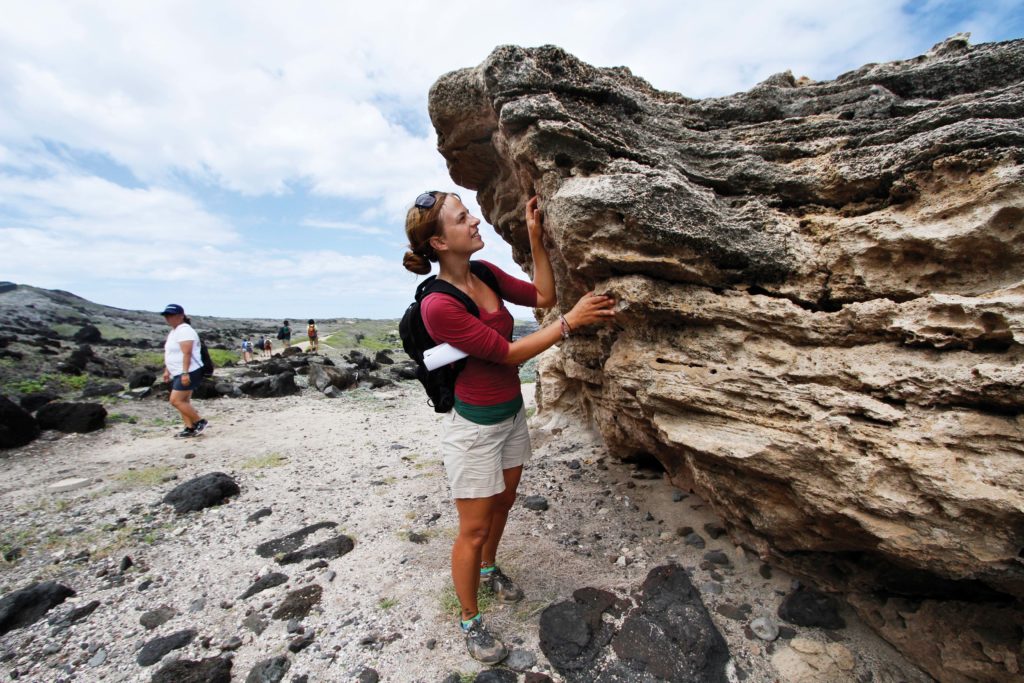
20120922-5257 FTR KAENA POINT Ken Suzuki leads a Hawaii Nature Center hike to Kaena Point starting from the end of Farrington Hwy. on the Waianae side of Ka’ena Point. The trail follows an old railroad bed and former dirt road that runs along the westernmost point on Oahu. The trail leads to Ka’ena Point Natural Area Reserve that is protected by a fence preventing dogs and other predators from entering the last coastal sand dune habitat on the island and home to native plants and seabirds. Hawaiian monk seals frequent the area. Participants included Pauline Kawamata, Steve Poor, Denel McDowell, Kristen Gagesch, Monica Szczupider and Jenna Gatzke. This is Monica Szcczupider getting a close look at the many layers in this large rocky outcropping, “leina a ka ‘uhane” (“spirit leap”) near Ka’ena Point, where spirits (according to http://apdl.kcc.hawaii.edu/oahu/stories/waialua/index.htm) of the recently departed leapt into the sea from this uplifted limestone rock and were met by ancestors who guided them safely to the land of spirits. Monica said she’s amazed at the layers of history that are revealed in the side of the rock. PHOTO BY DENNIS ODA. SEPT. 22, 2012. 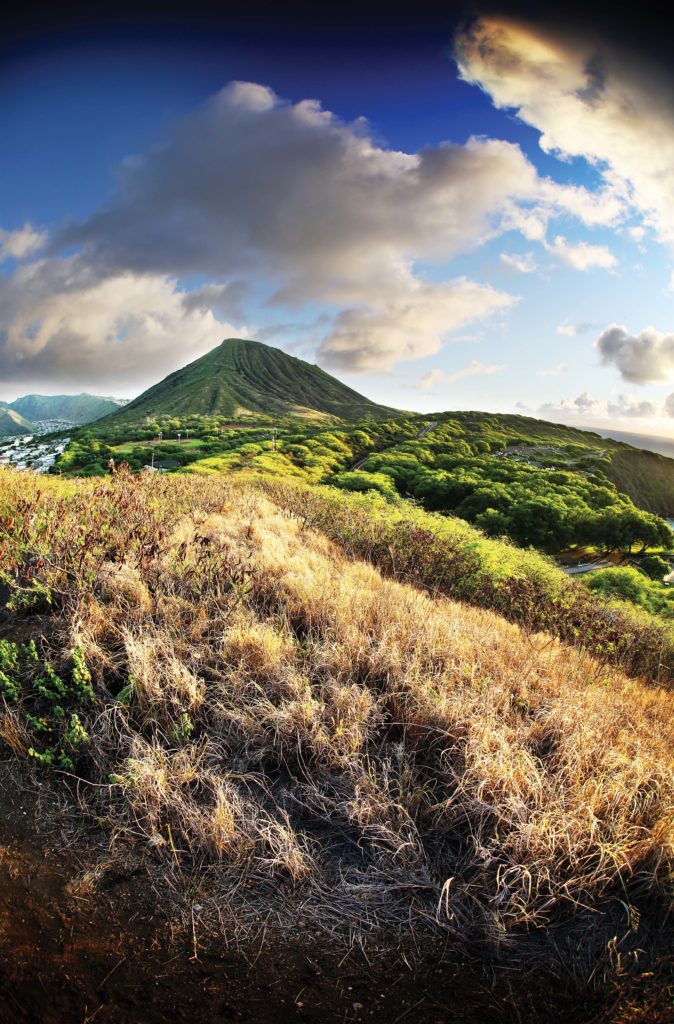
Hanauma Bay, Hanauma Bay Ridge Hike 2019
Tide Pool Pleasures
Rated one of the top shore snorkeling locations in the world, Shark’s Cove is a portion of Pupukea Beach Park on the North Shore. With two snorkeling areas: one enclosed by rocks, the other opening to the ocean, Shark’s Cove has pristine conditions for novice and experienced snorkelers. There’s little odds of meeting an actual shark, but you’ll certainly have the chance to view a variety of marine life like Butterflyfish, Parrotfish, green sea turtles, and Hawai‘i’s state fish, the Humuhumunukunukuapua‘a.
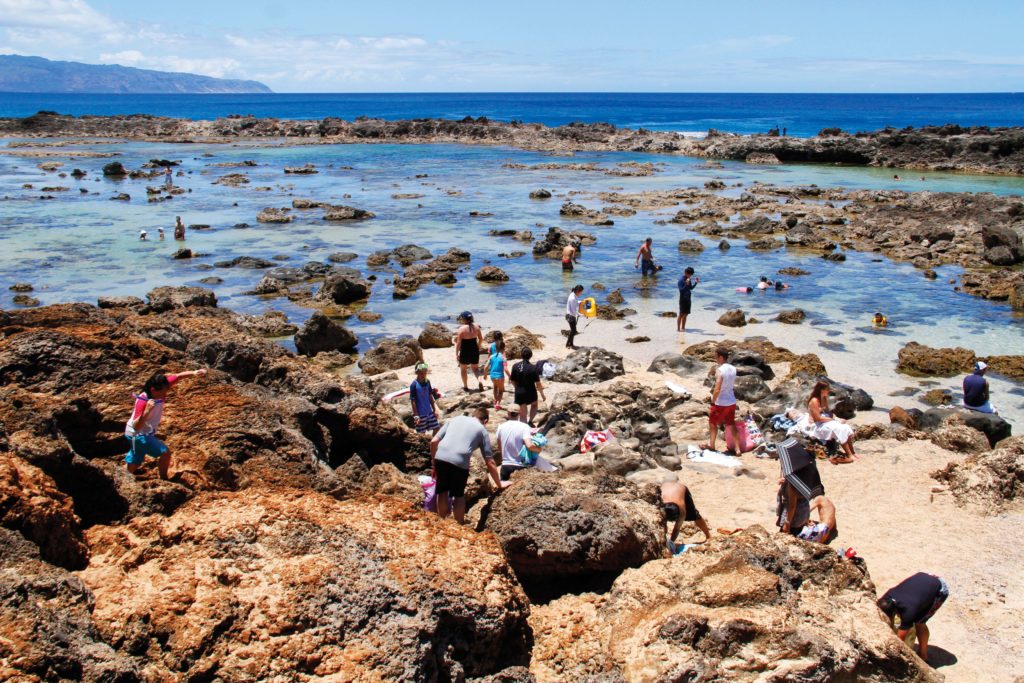
In addition, with its crystal-clear pools lined by lava rock, a dip in the Makapu‘u Tide Pools is an excellent refresher while trekking the aforementioned Makapu‘u Lighthouse Trail. Here, just past the whale watching station, you’ll notice an unmarked trail that leads down toward the water. The trail to the pools is a bit steep and rocky, so proceed with caution.* Once you arrive at the shoreline, feel the spray of ocean-fed blowholes and relax in the shallow natural pools.
*It is advised to check ocean current conditions, as waves can crash into the pools and sweep swimmers out to sea
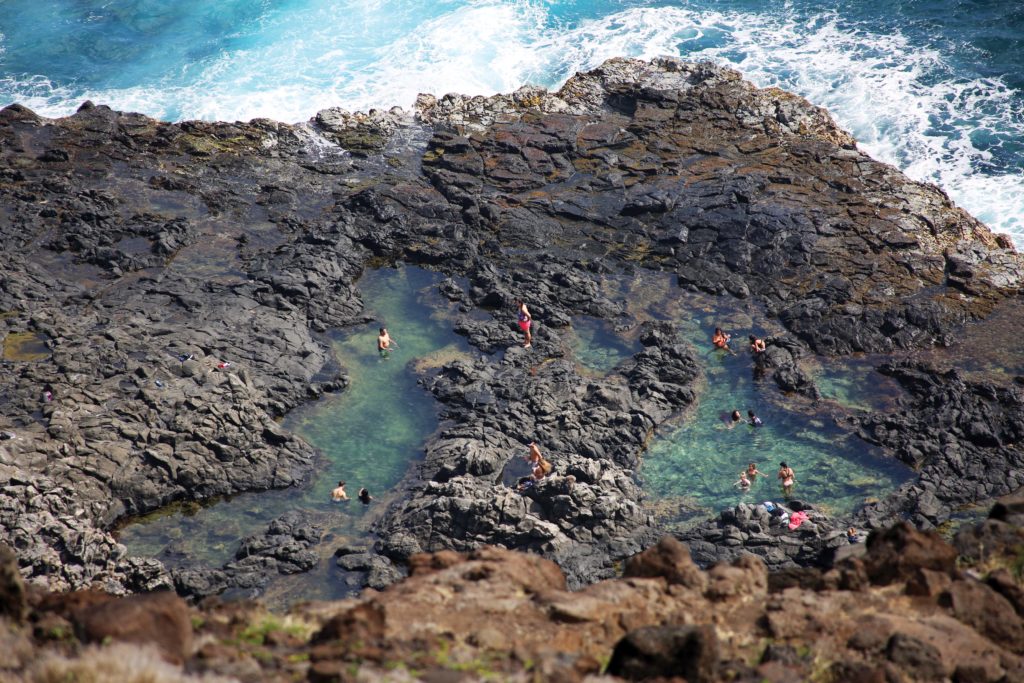
From O‘ahu’s azure waters to its emerald green forests and scenic coastlines, the island is just begging to be explored.
Closer to town, formed within a volcanic crater, Hanauma Bay is a protected marine life conservation area. Sheltered from strong currents and waves, Hanauma Bay (“Curved Bay”) is an ideal swimming and snorkeling area for guests of all ages. Exploring Hanauma Bay’s waters, you’ll view a thriving ecosystem filled with coral reefs and dozens of colorful native fish species. A feeding area for honu (green sea turtles), it’s likely to see them swimming within the bay.
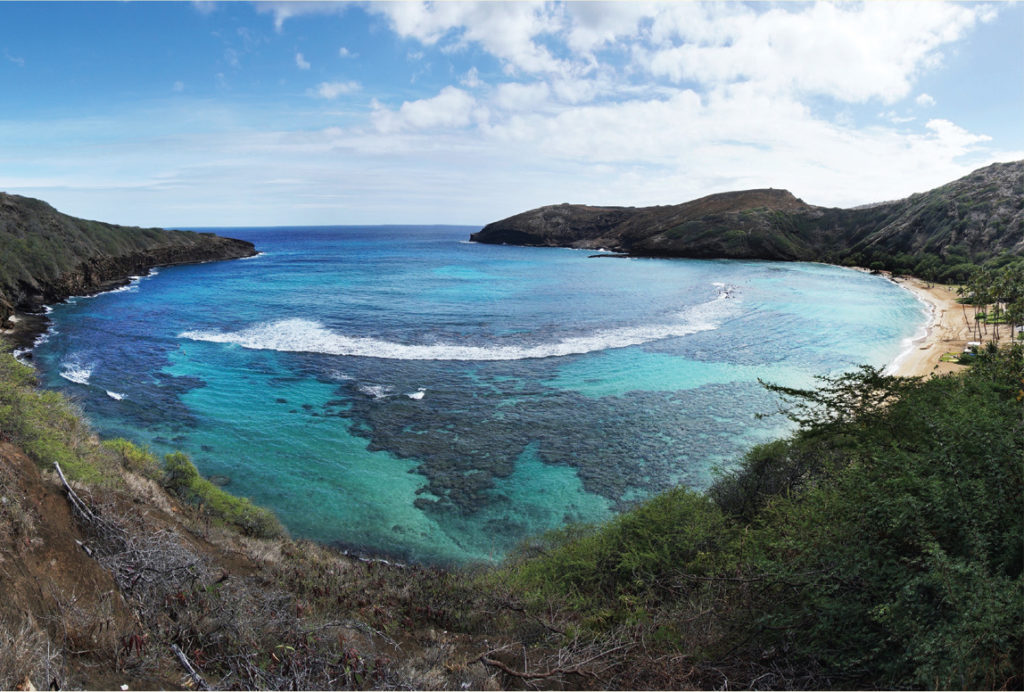
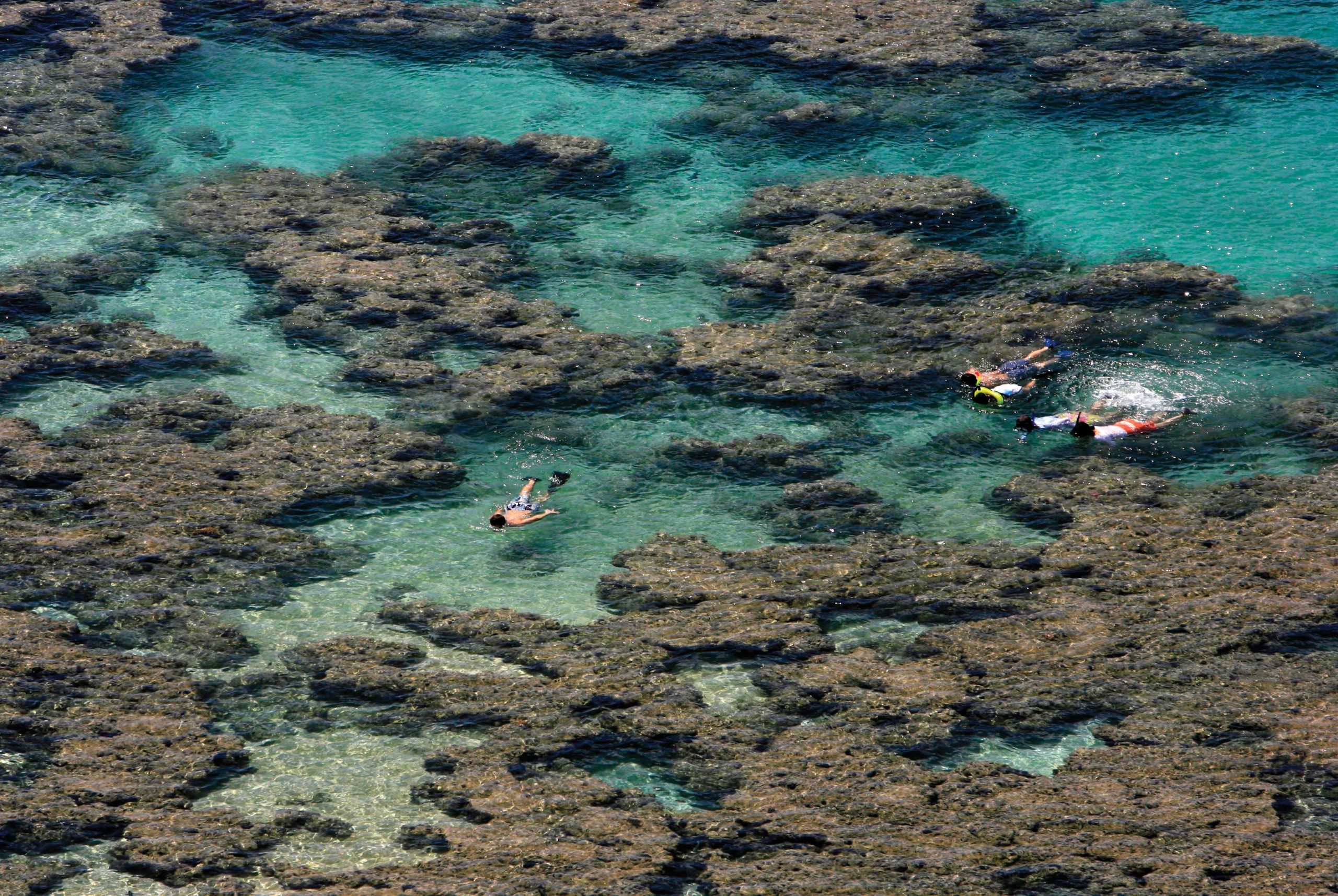
2008 March 23 SSC – Snorkelers explore the reef at Hanauma Bay, on the south-east coast of Oahu. The bay is one of the Seven Wonders of Hawaii. The well-known volcanic caldera, with its cobalt blue waters and pristine reefs and reef fish, is one of Oahu’s most popular visitor destinations. This popularity, though, has taken a toll on the habitat, and every visitor that enters is expected to abide by the “no standing” rule on the reef flats to preserve the coral and wildlife in the bay. Honolulu Star-Bulletin Photo by Jamm Aquino. 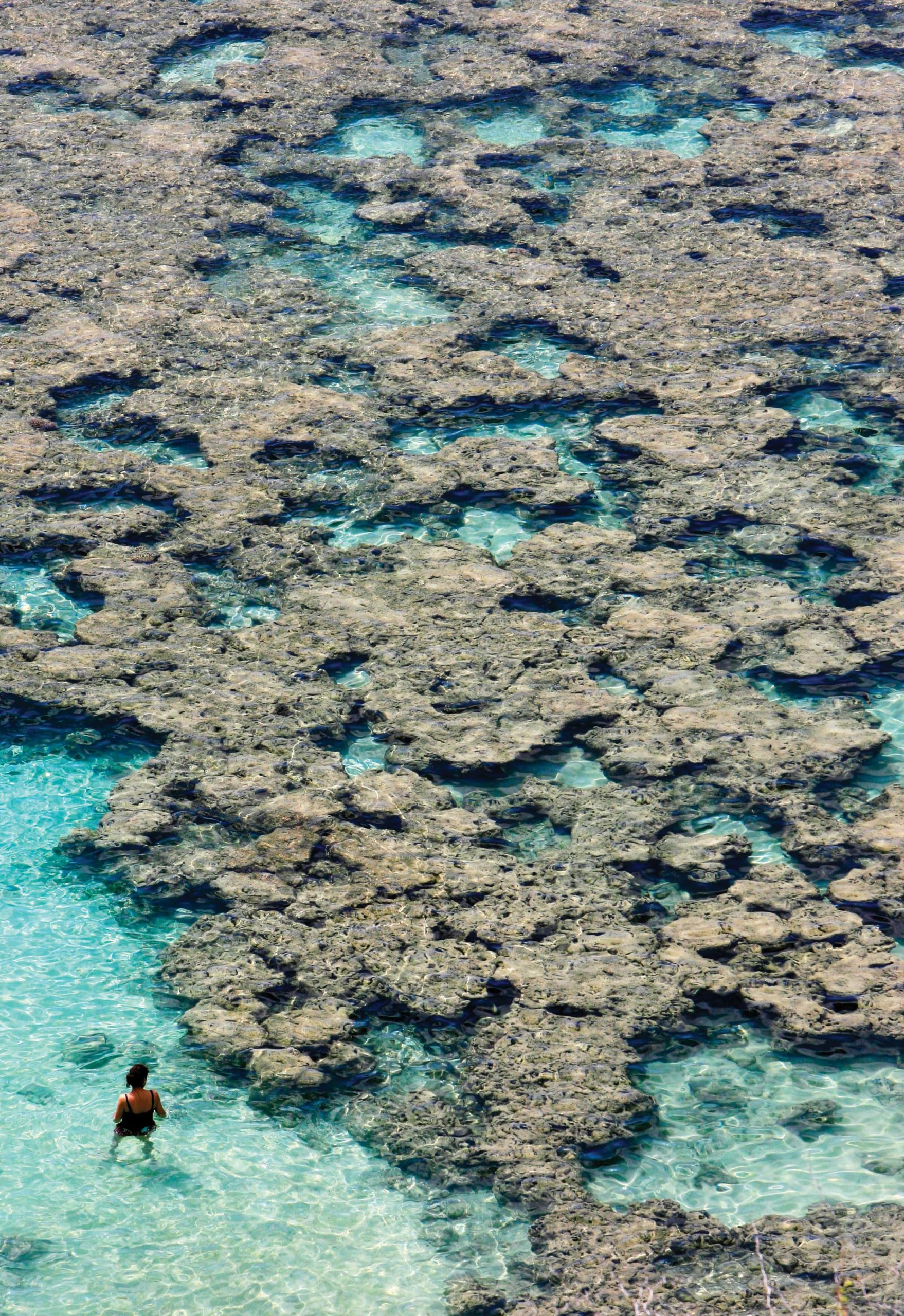
2008 March 23 SSC – A woman wades near the reef at Hanauma Bay, on the south-east coast of Oahu. The bay is one of the Seven Wonders of Hawaii. The well-known volcanic caldera, with its cobalt blue waters and pristine reefs and reef fish, is one of Oahu’s most popular visitor destinations. This popularity, though, has taken a toll on the habitat, and every visitor that enters is expected to abide by the “no standing” rule on the reef flats to preserve the coral and wildlife in the bay. Honolulu Star-Bulletin Photo by Jamm Aquino.
Built for Adventure
Nature’s splendor aside, there are plenty of “manmade” diversions to enjoy on O‘ahu as well. At CLIMB WORKS, embrace the thrill of flight as you soar above dense tropical forests, gaining a birds-eye view of the surrounding mountains and coast. A must for adventure seekers, the three-hour zip line tour begins with a two-mile ATV ride through an agriculture farm and rainforest. Guests then ride eight zip lines that range from 500 feet to nearly a half-mile. Four sky bridges make the transition from each zip line to the next a breeze. At the conclusion, you’ll learn about the farming history of O‘ahu and enjoy the tastes of local fruit grown on the on-site farm.
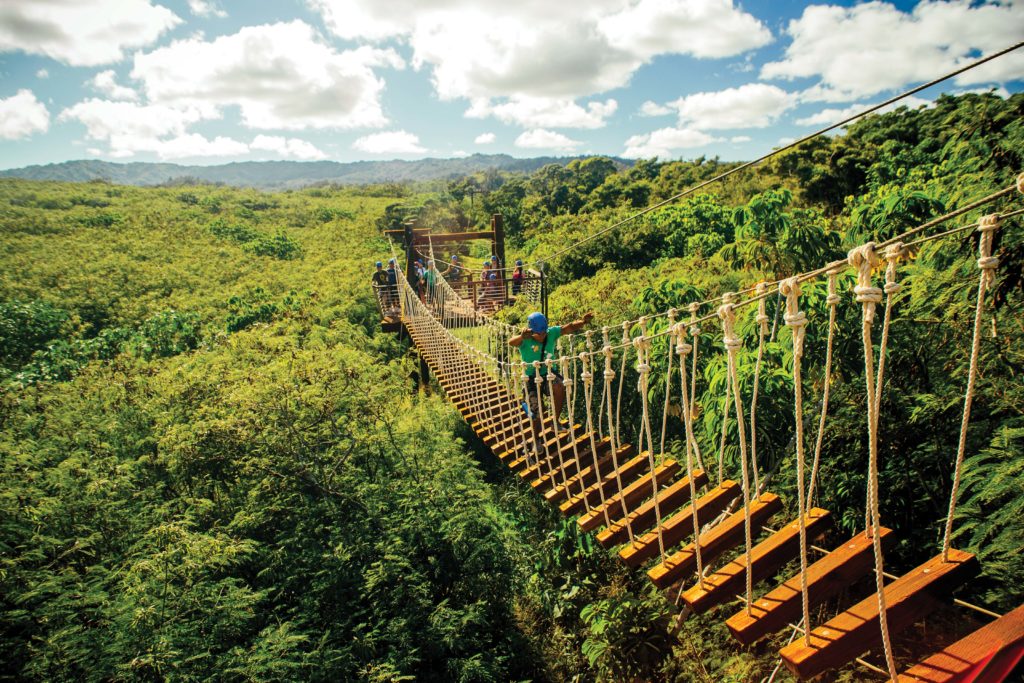
A masterpiece in design, aesthetics, and landscaping, BYODO-IN TEMPLE (byodo-in.com) is a non-denominational Buddhist temple. A place to admire and find serenity, Byodo-In Temple—a replica of the 950-year-old temple of the same name in Japan—was built in 1968 as a commemoration of the first Japanese immigrants to arrive in Hawai‘i.
Welcoming guests are wild peacocks that graze the landscaped lawn and gardens. Before entering the temple’s halls ring the Bon-Sho (sacred bell), whose meditative sound is known to cleanse the spirit of evil and temptation. Each room, shrine, sculpture, and piece of artwork has been constructed and crafted in intricate detail. A focal piece of the temple is Amida Buddha, a carved nine-foot-high statue that is preserved in lacquer and gold leaf. The sense of tranquility that radiates from Byodo-In Temple is a pleasant reprieve from the busyness that often surrounds our daily lives.
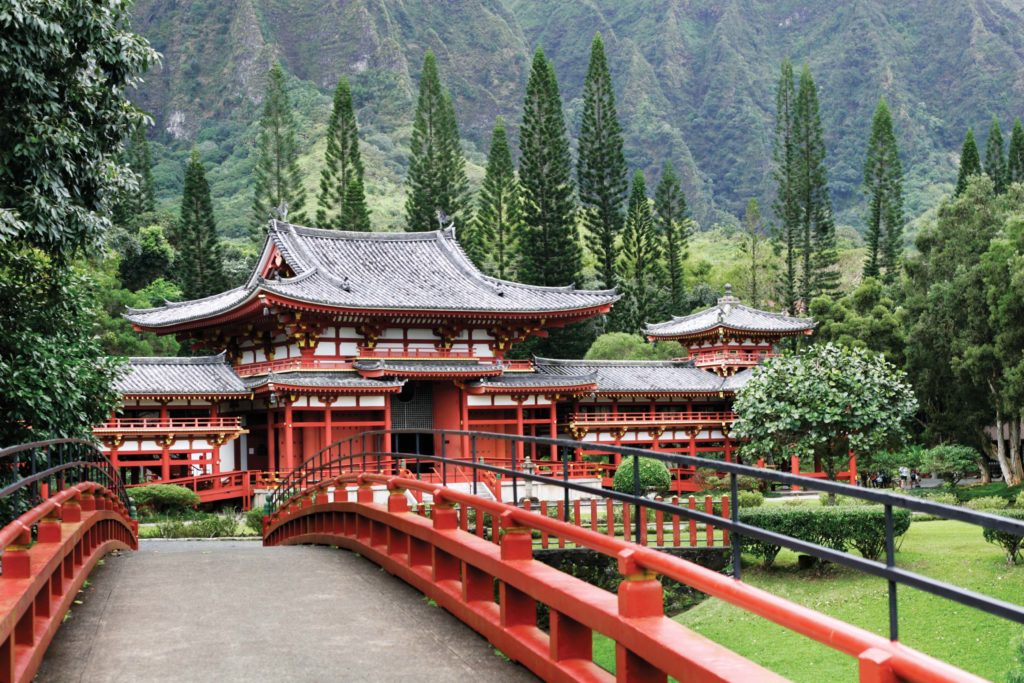
Surfing in Session
Located nearly smack in the middle of the Pacific Ocean, the winds, currents, and ocean conditions that surround O‘ahu make for some of the most spectacular waves on the planet. Surfing those waves—big or small—has been described as feeling nature’s energy in its purest form.
For first-timers—or if it’s been a while since your last surf session—you can’t go wrong hopping on a board off WAIKIKI BEACH or WHITE PLAINS BEACH (in Kapolei). For the better part of the year, both breaks offer gentle rolling waves, perfect for learning or improving form. Neither is too intimidating and both have mostly sandy bottoms, just in case a spill occurs (which it probably will if you’re a beginner). For information on nearby places to rent a surfboard or to get lessons to ask a concierge representative for more assistance.
Or, let the pros show you how it’s done. Because let’s be serious, it takes a lot of skill and even greater guts to ride the 15 to 40-foot behemoth waves of O‘ahu’s North Shore. Each winter the world’s top surfers congregate on the North Shore to showcase their talents on surfing’s biggest stage. To see a sporting spectacle unlike any in the world check out the VAN’S TRIPLE CROWN OF SURFING, which runs in November and December. If you’re on island this winter and get really lucky, THE EDDIE AIKAU BIG WAVE INVITATIONAL will be a “go.” Hosted only five times since 2000, this big wave surfing event is only held if surf swells reach 20-plus feet. The window for the event to run is from Dec. 1 to Feb. 29.
